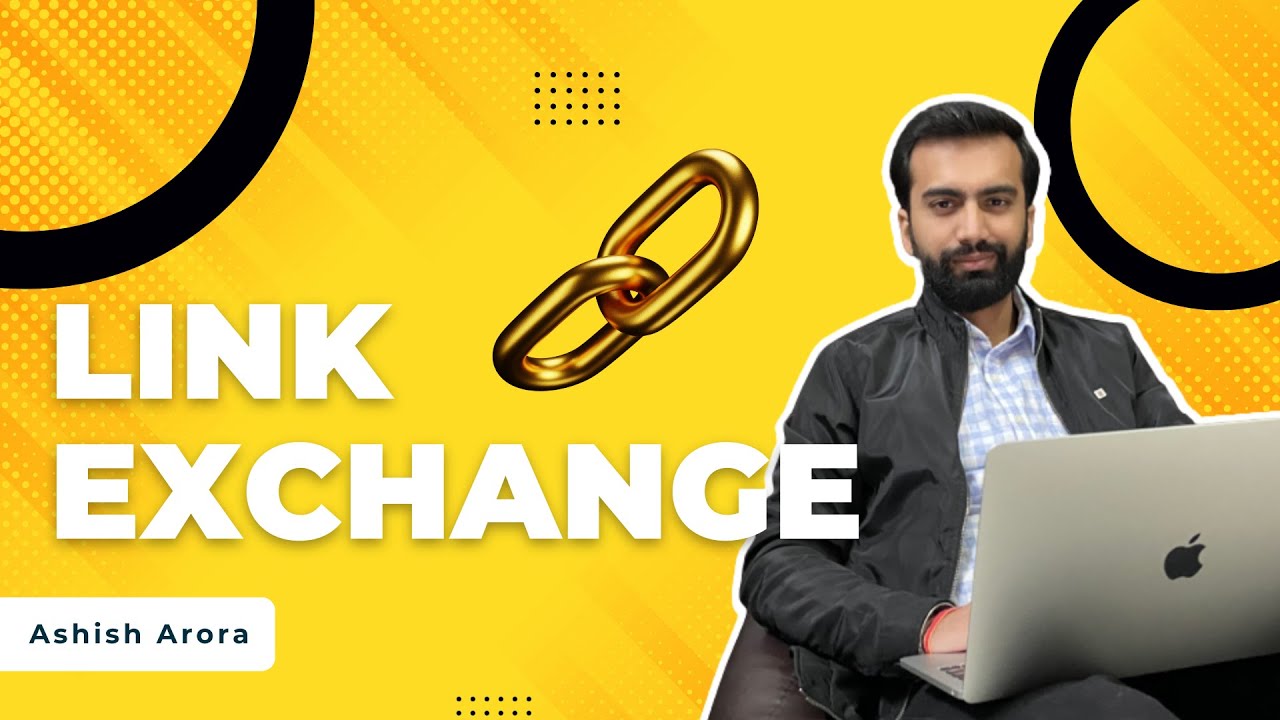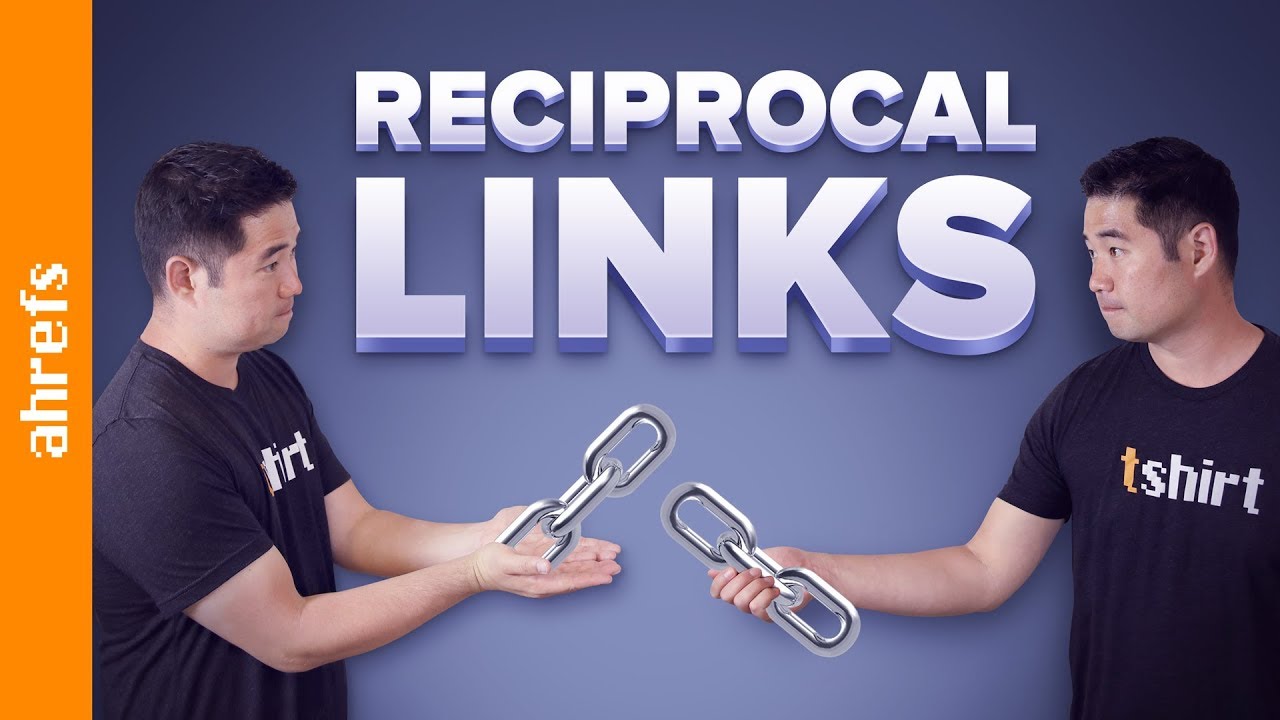In the vast and competitive landscape of the internet, website owners and marketers are constantly seeking strategies to enhance their online visibility and drive targeted traffic to their platforms. One effective technique that has stood the test of time is link exchange. Link exchange, also known as reciprocal linking, is a practice where two websites agree to display each other's links on their respective platforms.
Understanding Link Exchange

Link Exchange : Good or Bad for SEO?
Link exchange, also known as reciprocal linking, is a practice in which two websites agree to display each other's links on their respective platforms. It involves a mutual arrangement where websites exchange hyperlinks with each other. The exchanged links act as pathways, directing visitors from one website to another.
The concept behind link exchange is based on the idea that when two websites link to each other, they are vouching for the credibility and quality of the linked content. This practice is often utilized between websites that share a common niche, industry, or target audience. By exchanging relevant and valuable links, website owners aim to enhance their online visibility, improve search enginerankings, and drive targeted traffic to their platforms.
However, it's important to approach link exchange strategically and adhere to best practices. Prioritizing relevance, and quality, and maintaining a diverse link profile are crucial for the success of link exchange. Additionally, monitoring the performance of exchanged links and staying updated on changes in search engine algorithms are essential to ensure the effectiveness of link exchange as a part of a comprehensive SEO strategy.
Importance Of Link Exchange In SEO
Link exchange plays a significant role in search engine optimization(SEO) by improving a website's visibility, authority, and rankings in search engine results. It offers several key benefits that contribute to a website's overall SEOsuccess. Let's explore the importance of link exchange in SEO:
Enhanced Search Engine Rankings
Search engines consider backlinksas a crucial factor in determining a website's authority and relevance. When reputable and relevant websites link to your website through link exchange, search engines interpret it as a vote of confidence and trust in your content. This, in turn, can positively impact your search engine rankings, helping your website appear higher in search results and gain increased visibility.
Increased Website Traffic
Link exchange can drive targeted traffic to your website. When a website that is relevant to your niche or industry links to your website, it creates an opportunity for visitors to discover and click through to your site. This click-through traffic from the exchanged links can result in an influx of new visitors who may have a genuine interest in your content or offerings, potentially leading to higher engagement and conversions.
Broadened Backlink Profile
A diverse and natural backlink profile is important for SEO. Engaging in link exchange allows you to acquire backlinks from various reputable sources within your industry. By partnering with different websites and gaining links from them, you diversify your backlink profile. This diversification signals to search engines that your website is connected to a broader network of relevant sources, further enhancing your website's authority and credibility.
Improved Online Reputation And Trust
When reputable websites link to your website through link exchange, it not only benefits your search engine rankings but also contributes to your online reputation and user trust. Users tend to perceive websites more favorably when they are associated with respected sources. Linking to and being linked by reputable websites through link exchange helps establish your website as a reliable and trustworthy resource within your industry, boosting user confidence and engagement.
Networking And Partnership Opportunities
Link exchange provides an opportunity for networking and establishing partnerships within your industry. When engaging in a link exchange, you connect with other website owners who share similar interests and target audiences. This networking can lead to collaboration, guest posting opportunities, and other mutually beneficial ventures. Building relationships through link exchange expands your professional network, enabling you to explore additional marketing avenues and expand your online presence.
Is Exchanging Links A Legitimate Strategy?

Do Reciprocal Links Hurt Your SEO? (Link Building Study)
Exchanging links, when done ethically and within certain guidelines, can be a legitimate and valuable strategy in digital marketing. However, it is important to approach link exchange with caution and adhere to best practices to ensure its effectiveness and maintain ethical standards. Here are some points to consider:
- Relevance and Quality -Link exchange should be focused on exchanging links with relevant and reputable websites. The links should provide value to users and align with the content and theme of both websites. Prioritizing quality over quantity is crucial to maintain the integrity of the exchanged links.
- Avoid Manipulative Tactics -It's important to avoid manipulative link schemes or practices that violate search engine guidelines. These can include excessive reciprocal linking, participating in link farms, or engaging in paid link exchanges solely for the purpose of manipulating search engine rankings. Such practices can lead to penalties from search engines and harm your website's reputation.
- Diversity and Naturalness -A natural backlink profile is essential for long-term success. While link exchange can be a part of your backlink strategy, it should be complemented with other types of backlinks, such as organic editorial links or earned links. Aim for diversity in your backlink profile, including links from various sources, domains, and anchor texts.
- Relationship Building -Link exchange can be a means of building relationships within your industry or niche. Establishing connections with other website owners through link exchange can lead to future collaborations, guest posting opportunities, or sharing of valuable resources. Networking and fostering genuine relationships can bring long-term benefits beyond just link exchange.
- Monitoring and Adaptation -It's crucial to monitor the performance of the exchanged links regularly. Ensure that the links are active and relevant, and continue to provide value. Additionally, stay updated on changes in search engine algorithms or guidelines that may affect the effectiveness of link exchange. Be prepared to adapt your strategy accordingly to maintain its legitimacy and effectiveness.
Factors To Consider When Choosing Link Exchange Partners
When selecting link exchange partners, it's important to consider several factors to ensure the effectiveness and relevance of the exchanged links. Here are some key factors to consider:
- Relevance to Your Niche or Industry -Choose link exchange partners that are relevant to your niche or industry. Websites that share similar topics or target similar audiences are more likely to provide valuable and meaningful links. Relevance helps ensure that the exchanged links are contextually appropriate and relevant to both websites' visitors.
- Website Authority and Quality -Assess the authority and quality of potential link exchange partners. Consider factors such as their domain authority, overall website credibility, and the quality of their content. Partnering with reputable and authoritative websites enhances the value of the exchanged links and strengthens your website's credibility in the eyes of search engines and users.
- Link Placement and Visibility -Evaluate where the exchanged links will be placed on the partner's website. Ideally, the links should be prominently positioned and easily visible to visitors. Links buried in low-traffic pages or hidden in footers or sidebars may have limited impact. Aim for links that are strategically placed within relevant content to maximize visibility and click-through opportunities.
- Link Profile and Diversity -Consider the existing link profile of potential link exchange partners. It's beneficial to partner with websites that have a diverse and natural backlink profile. Avoid websites with excessive link exchanges or those associated with spammy or low-quality sites, as this can negatively impact your website's reputation and SEO.
- Traffic and Audience Engagement - Assess the traffic and engagement levels of potential link exchange partners. Websites with a substantial and engaged user base offer better opportunities for attracting relevant traffic to your website. Look for websites that have active user engagement, such as comments, social mediainteraction, and regular updates, indicating an involved and active audience.
- Long-Term Potential -Consider the potential for long-term collaboration and relationship building with link exchange partners. Look for opportunities beyond just exchanging links, such as guest posting, co-marketing initiatives, or knowledge sharing. Building long-term partnerships can lead to mutually beneficial outcomes and a stronger network within your industry.
When Should You Consider A Link Exchange?

SEO Debate: Should You Be Linking Out to Other Websites?
Link exchange can be considered as part of your digital marketing strategy in various situations. Here are some scenarios when you should consider a link exchange:
- Building Relationships and Networking -Link exchange can be beneficial when you want to establish relationships and networks within your industry or niche. Engaging in link exchange allows you to connect with other website owners who share similar interests and target audiences. It can be a starting point for building collaborations, sharing resources, and exploring mutually beneficial opportunities beyond just link exchange.
- Seeking Relevant and Quality Backlinks -If you are looking to enhance your website's backlink profile with relevant and high-quality backlinks, link exchange can be an effective strategy. By exchanging links with reputable websites that are relevant to your industry or niche, you can acquire valuable backlinks that contribute to your website's authority and search engine rankings.
- Expanding Online Visibility and Reach -When you want to broaden your online presence and reach a wider audience, link exchange can play a role. By partnering with websites that have an established audience within your target market, you can leverage their platform to gain exposure and attract relevant traffic to your website. This can lead to increased brand awareness and potential conversions.
- Boosting SEO and Search Engine Rankings -Link exchange can be considered when you aim to improve your website's search engine rankings. By exchanging links with reputable and authoritative websites, you send positive signals to search engines, indicating that your website is trusted and provides valuable content. This can potentially result in higher rankings in search engine results pages (SERPs) and increased organic visibility.
- Generating Targeted Traffic -If you are looking to attract targeted traffic to your website, link exchange can be a valuable strategy. When visitors browse other websites that have relevant links to your website, they may be more inclined to click through and explore your content. This can lead to an influx of targeted traffic from users who are genuinely interested in what your website offers.
Best Practices For Successful Link Exchange
To make the most of link exchange and ensure its effectiveness, it's important to follow best practices. Here are some key best practices for successful link exchange:
- Relevance is Key -Seek link exchange partnerships with websites that are relevant to your industry, niche, or target audience. Relevance ensures that the exchanged links are valuable and meaningful to the users of both websites. Consider the topics, themes, and target demographics of potential link exchange partners to ensure a strong connection.
- Focus on Quality -Prioritize quality over quantity when selecting link exchange partners. Partner with reputable websites that have high domain authority, a strong online presence, and quality content. Exchanging links with trusted and authoritative sources enhances the credibility and value of the exchanged links. Avoid engaging in link exchange with low-quality or spammy websites, as this can have a negative impact on your own website's credibility.
- Diversify Your Link Profile -Aim for a diverse link profile by exchanging links with websites that vary in terms of domain authority, content focus, and geographic location. A diverse link profile appears more natural to search engines and indicates a well-rounded online presence. This diversification helps create a natural and organic backlink profile, which search engines favor.
- Maintain a Balance -While link exchange can be beneficial, it's important not to solely rely on reciprocal links. It's recommended to combine link exchange with other SEO strategies, such as creating high-quality content, building relationships with influencers, and attracting natural backlinks. This balanced approach ensures that your website's link profile is well-rounded and diverse.
- Monitor and Update -Regularly monitor the performance of your link exchange partnerships. Ensure that the links are functional, and periodically review the relevance and quality of the linked websites. Keep an eye out for broken or inactive links and update them accordingly. Monitoring and updating your link exchange efforts help maintain the effectiveness and integrity of your link profile.
- Communication and Relationship Building -Establish open lines of communication with your link exchange partners. Maintain a professional and collaborative relationship. This can lead to potential collaboration opportunities beyond link exchange, such as guest posting or joint marketing efforts. Building positive relationships within your industry can foster long-term partnerships and mutual support.
Mistakes To Avoid In Using Link Exchange
While link exchange can be a valuable strategy, there are several common mistakes that website owners should avoid to ensure its effectiveness and maintain a positive impact on their SEO efforts. Here are some mistakes to avoid when using link exchange:
- Excessive Link Exchanges -Engaging in excessive link exchanges solely for the purpose of acquiring backlinks can be detrimental to your website's credibility. Search engines may view this as an attempt to manipulate rankings. Focus on quality over quantity and prioritize relevant and reputable link exchange partners.
- Linking to Low-Quality or Spammy Websites -Exchanging links with low-quality or spammy websites can have a negative impact on your own website's reputation. It's essential to carefully evaluate the quality and relevance of potential link exchange partners to maintain the integrity of your link profile.
- Ignoring Relevance -Linking to websites that are not relevant to your industry or audience can dilute the value of your link profile. Ensure that the websites you engage in link exchange with are related to your niche or have content that aligns with your target audience's interests.
- Neglecting Link Placement -Pay attention to where your exchanged links are placed on the partner website. Links buried in low-traffic pages or hidden in footers or sidebars may not receive much visibility or user engagement. Aim for links that are strategically placed within relevant content to maximize their effectiveness.
- Not Monitoring Link Performance -It's important to regularly monitor the performance of your exchanged links. Check for broken or inactive links and update them as needed. Additionally, keep track of the traffic and engagement generated from the exchanged links to assess their impact on your website's visibility and conversions.
- Neglecting Other SEO Strategies -While link exchange can be beneficial, it's crucial not to rely solely on it for your SEO efforts. Neglecting other essential strategies, such as creating high-quality content, optimizing on-page SEO elements, and attracting natural backlinks, can limit your overall SEO success. Use link exchange as one component of a comprehensive SEO strategy.
- Ignoring Changes in Search Engine Algorithms -Stay informed about updates and changes in search engine algorithms that may impact the effectiveness of link exchange. Search engines regularly evolve their algorithms to prioritize high-quality and relevant content. Adapting your link exchange strategy to align with these changes is crucial to maintain your website's SEO performance.
People Also Ask
Is Link Exchange Still Effective For SEO In 2023?
Yes, link exchange can still be effective for SEO in 2023. When done strategically with relevant and reputable websites, it can improve search engine rankings and drive targeted traffic.
How Can I Find Suitable Websites For Link Exchange?
To find suitable websites for a link exchange, consider reaching out to websites in your industry or niche, using online directories, participating in forums or communities related to your field, and networking with other website owners.
Are There Any Risks Associated With Link Exchange?
Yes, there are risks associated with link exchange. Engaging in excessive or low-quality link exchanges, or participating in link schemes, can result in penalties from search engines. It's important to prioritize quality and relevance when exchanging links.
Should I Prioritize Link Exchange Or Focus On Natural Backlinks?
It's advisable to prioritize a combination of both link exchange and natural backlinks. Natural backlinks earned organically, are highly valuable. However, link exchange can complement your backlink strategy and provide additional visibility and traffic opportunities.
How Can I Measure The Success Of My Link Exchange Efforts?
To measure the success of your link exchange efforts, monitor your website's search engine rankings, track referral traffic from exchanged links, analyze user engagement metrics, and assess the overall impact on your website's visibility and domain authority.
Conclusion
Link exchange remains a powerful strategy for boosting a website's visibility and attracting relevant traffic. It's essential to approach link exchange with care, prioritizing quality over quantity and adhering to best practices. By maintaining a balanced link profile, monitoring and updating your partnerships, and combining link exchange with other SEO strategies, you can leverage the power of reciprocal linking to propel your website to new heights of success in the digital landscape.

